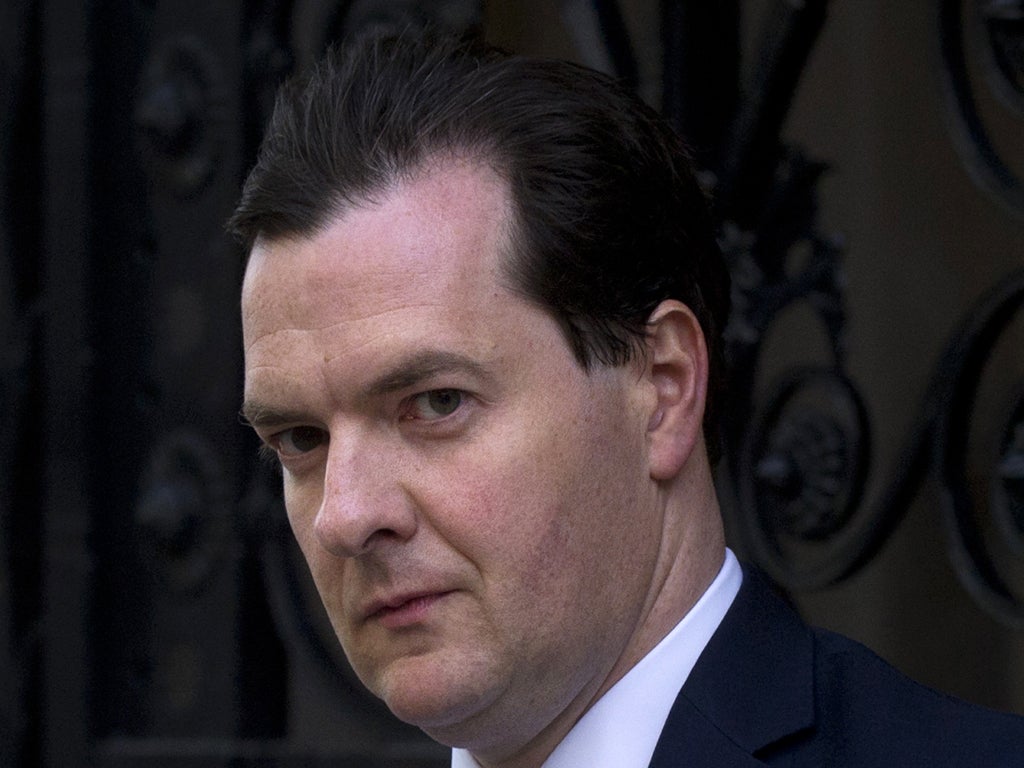George Osborne slammed by his own climate change advisors over 'dash for gas'

Your support helps us to tell the story
From reproductive rights to climate change to Big Tech, The Independent is on the ground when the story is developing. Whether it's investigating the financials of Elon Musk's pro-Trump PAC or producing our latest documentary, 'The A Word', which shines a light on the American women fighting for reproductive rights, we know how important it is to parse out the facts from the messaging.
At such a critical moment in US history, we need reporters on the ground. Your donation allows us to keep sending journalists to speak to both sides of the story.
The Independent is trusted by Americans across the entire political spectrum. And unlike many other quality news outlets, we choose not to lock Americans out of our reporting and analysis with paywalls. We believe quality journalism should be available to everyone, paid for by those who can afford it.
Your support makes all the difference.George Osborne's 'dash for gas' is putting Britain's legally binding carbon reduction commitments in jeopardy, the Government-appointed climate change advisory panel warned today.
In a highly significant intervention the Climate Change Committee (CCC) sent an open letter to ministers criticising the "apparently ambivalent position of the Government" about whether to commit to new zero-carbon electricity generation or build new gas power stations.
Mr Osborne is known to be in favour of prioritising gas to replace Britain's current ageing coal burning power stations rather than spending extra money on renewables or nuclear power generation.
However he is facing fierce private opposition from the Liberal Democrats who have warned that any watering down of current proposals to subsidise renewable generation to make production economically viable will result in Britain breaching is legally binding carbon reduction commitments.
They are pushing for the Government to adopt new legally binding commitment which would specify how much carbon can be produced through electricity generation by 2030 - as a way of spurring investment in renewables. However this is being blocked by Mr Osborne.
In its letter, the Climate Change Committee - which is chaired by the former Conservative minister John Gummer - criticises recent statements by the Department of Energy and Climate Change, forced upon them by Mr Osborne, that gas has a significant role to play in electricity generation.
"We are writing to express great concern about the recent Government statement "that it sees gas as continuing to play an important role in the energy mix well into and beyond 2030...[not] restricted to providing back up to renewables," they write.
"Extensive use of unabated gas-fired capacity would be incompatible with meeting legislated carbon budgets."
The committee adds that the mixed signals being sent by the Government on how it will choose to meet Britain's future electricity needs risks putting off investment in renewables.
"The apparently ambivalent position of the Government about whether it is
trying to build a low-carbon or a gas-based power system weakens the signal provided by
carbon budgets to investors," they say.
"It makes more pronounced the perceived risk that the Electricity Market Reform (EMR) will perpetuate the current stop-start approach to investment in lowcarbon technologies.
"As a result, the cases for low-carbon business development, capital allocation, innovation and supply chain investment are undermined, damaging prospects for required low-carbon investments.
"This has been made clear to us in our extensive discussions with the energy and supply chain companies....who have suggested to us that the sector investment climate is currently very poor."
Senior Whitehall sources said while the letter had been sent to the Climate Change Secretary Ed Davy - the real target was Mr Osborne who was copied in.
"This is very significant," they said. "Normally these warnings are given behind closed doors. The fact that they have chosen to go public shows just concerned they are that Osborne might succeed in watering down our current commitments."
Environmental groups welcome the committee's intervention.
Doug Parr, Greenpeace's chief scientific adviser, said: "So now it's clear, the Chancellor's expensive and polluting dash for gas is not only economic madness, it's potentially illegal.
"The Liberal Democrat Energy Secretary now needs to side with the Committee and stand up to George Osborne or leave his party's own green credentials in tatters. The test will be if he backs the decarbonisation of our electricity system in the forthcoming Energy Bill."
Keith Allott, head of climate change at WWF-UK, added: "This intervention by the CCC is devastating blow to those in the Government who are trying to steamroller through a new dash for gas. The Committee couldn't be clearer; this is just not viable if we want to meet our carbon budgets."
In a statement Ed Davey, said the Government's plans were "consistent" with significant decarbonisation of the power sector.
"We are absolutely committed to meeting our statutory carbon budgets," he said.
"That is why we are pushing through ambitious reforms to overhaul existing old fossil fuel power plants, replacing them with new low-carbon forms of power generation.
"A fifth of our power stations are closing over the next decade and we need to build a diverse mix of all the technologies to keep the lights on and lower our emissions.
"We have always said this will include gas fired plant, which is quick to build and flexible. After 2030 we expect that gas will only be used as back up, or fitted with Carbon Capture and Storage technology. But, alongside up-scaling of renewables, nuclear new build, and eventually with carbon capture and storage, gas has an important role to play in the transition to a low carbon grid."
Join our commenting forum
Join thought-provoking conversations, follow other Independent readers and see their replies
Comments